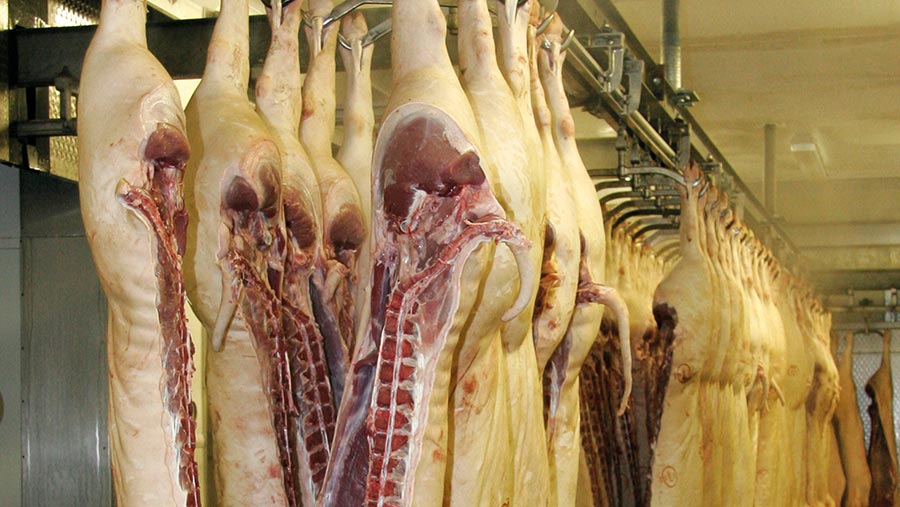Pig sector support plea as export ban hits processor plant
 © Tim Scrivener
© Tim Scrivener The future of meat processor Pilgrim’s Ashton-under-Lyne site is in doubt as China’s ban on exports continues to hit trade.
Pilgrim’s, formerly known as Tulip, announced it had been forced to put 100 workers at the Manchester pork processing plant on a three-day week.
Company officials blamed the move on an ongoing suspension of its licence to export pigmeat to China due to a Covid-19 outbreak among staff last October.
See also: Video: How sustainable farming is benefiting Scottish family
China has strict rules about importing food from countries with Covid-19 cases, and Pilgrim’s pre-empted a ban by voluntarily suspending its own licence.
Although the Ashton plant has been declared clear of the disease by Public Health England, the Chinese government is upholding the ban on exports.
A statement released by Pilgrim’s suggested the licence was being withheld because unrelated political tensions between the UK and Chinese governments had escalated.
The delay had significantly affected the site, which was in a financially unsustainable position, putting 600 jobs at risk.
Pilgrim’s said it was working closely with the government and relevant authorities to have the export licence reinstated immediately.
Licence bans also remain in place at Cranswick’s Norfolk site and QPL’s Brechin plants.
The combined loss in export trade is costing the processing sector £15 a pig, according to British Meat Processors Association (BMPA) estimates.
The BMPA suggested one million pig carcasses had been affected by the suspensions and the sector had seen trade cut by £600,000/week since licences were suspended last autumn.
Support package
Meanwhile, efforts to secure a £3.2m compensation package for pig producers are continuing. The National Pig Association (NPA) called for a support package after falling throughput caused a backlog of pigs on farms in the late winter and early spring.
The resulting surplus of overweight pigs was then hit by processor penalties amounting to 50% of the carcass value, explained NPA chief executive Zoe Davies. The total cost to pig farmers amounted to the requested £3.2m figure.
Although the backlog has since been dealt with, and pork prices have firmed, businesses are still in a desperate situation, Dr Davies said.
The losses incurred due to Brexit trade difficulties and the effects of Covid-19 have not been recovered, putting a huge hole in incomes for the year.
Defra’s own figures suggest a drop of more than 80% in pig producer incomes year on year, she said.
Feed prices now account for 75% of costs compared with a norm of 60%, Dr Davies pointed out.
Forthcoming AHDB figures on producer margins are also expected to paint a bleak picture, with a further decline in results for January to March this year compared with the situation at the end of 2020, when producers were already losing £25 a pig.
“We hope Defra will understand the devastating effect of factors outside pig farmers’ control and give us comparable support to other sectors like shellfish producers and leisure and tourism,” Dr Davies said.
